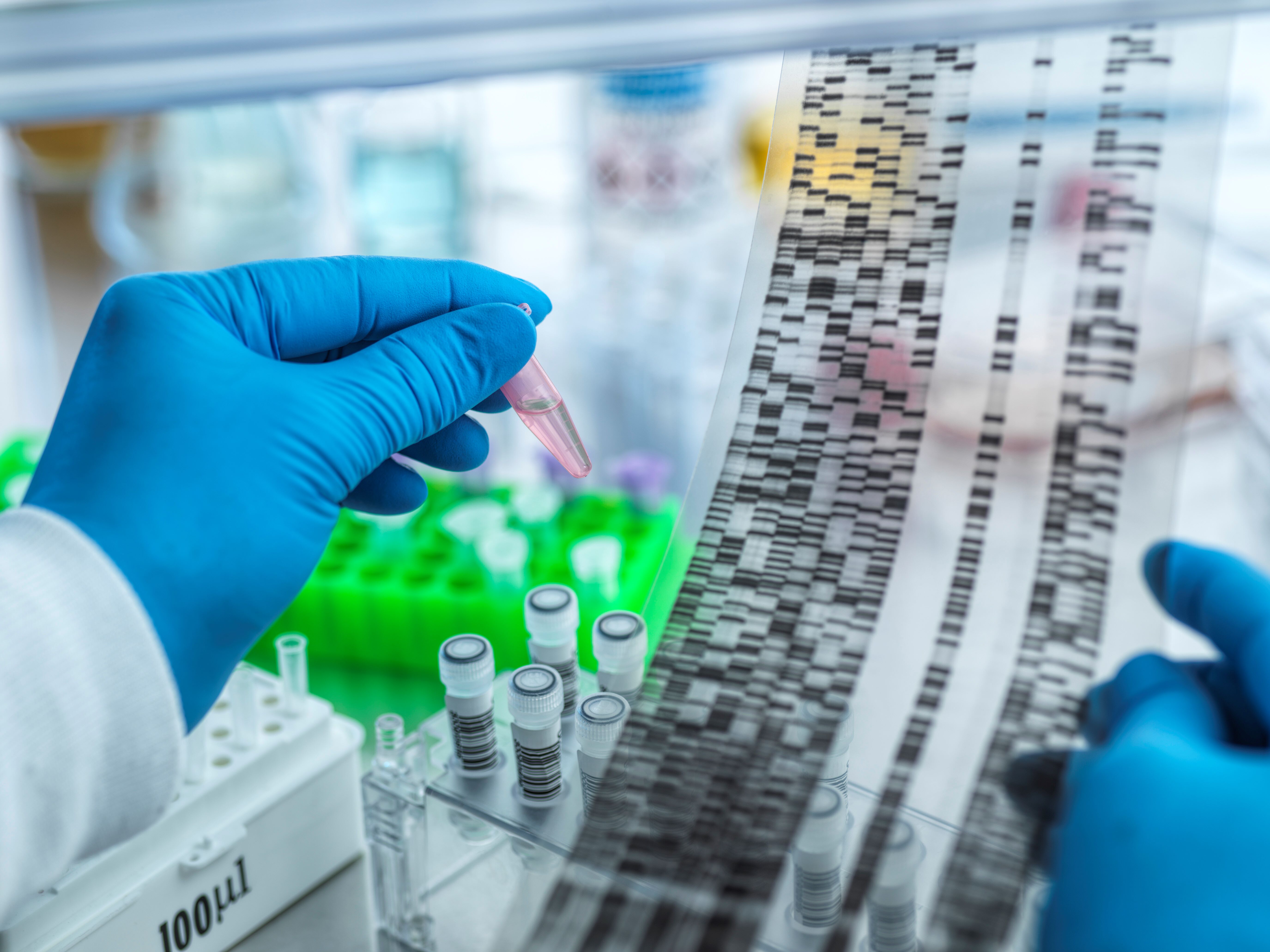The Ethics of Pathogen Genomics: Balancing Data and Dignity

Welcome to the companion blog post for our latest podcast episode, Beyond the Sequence: People, Pathogens, and Power Dynamics. In this episode, we delved into the fascinating and often ethically complex world of pathogen genomics. This field, which involves sequencing the genetic material of disease-causing microorganisms, holds immense potential for improving public health. However, it also raises profound questions about privacy, consent, and the potential for misuse of genetic data. This blog post expands on those themes, exploring real-world examples and offering insights into how we can ensure that scientific advancements in pathogen genomics respect human dignity and build trust within communities. From the controversies surrounding HIV surveillance to the global response to the COVID-19 pandemic, we'll examine the challenges and opportunities that arise when cutting-edge science intersects with complex social realities.
Introduction: The Ethical Crossroads of Pathogen Genomics
Pathogen genomics has revolutionized our ability to understand, track, and combat infectious diseases. By analyzing the genetic code of bacteria, viruses, and other pathogens, scientists can identify outbreaks, trace transmission pathways, and develop targeted interventions. However, this powerful technology also presents a unique set of ethical dilemmas. The information gleaned from pathogen genomes can potentially reveal sensitive information about individuals and communities, raising concerns about privacy, discrimination, and stigmatization. Furthermore, the uneven distribution of resources and expertise can exacerbate existing inequalities, leading to situations where some communities benefit from pathogen genomics while others are marginalized or even harmed. As we continue to advance in this field, it is crucial that we carefully consider the ethical implications and develop strategies to mitigate potential harms.
What is Pathogen Genomics?
At its core, pathogen genomics involves sequencing the entire genetic material, or genome, of a disease-causing organism. This process generates a vast amount of data that can be analyzed to understand the pathogen's characteristics, including its origin, evolution, and mechanisms of virulence. By comparing the genomes of different pathogens, scientists can identify patterns of transmission, track the spread of outbreaks, and predict how the pathogen might evolve over time. This information can then be used to develop targeted interventions, such as vaccines, diagnostics, and treatments. For example, during the COVID-19 pandemic, pathogen genomics played a critical role in identifying new variants, assessing their transmissibility and virulence, and developing effective vaccines and treatments. The ability to rapidly sequence and analyze pathogen genomes has transformed our approach to infectious disease control, allowing us to respond more quickly and effectively to emerging threats.
Ethical Dilemmas in Pathogen Genomics
While pathogen genomics offers tremendous potential for improving public health, it also raises a number of ethical dilemmas that must be carefully addressed. One of the primary concerns is the protection of privacy. Pathogen genomes can contain information that is not only specific to the pathogen but also potentially linked to the individuals it infects. For example, the geographic location of a pathogen strain can reveal information about the travel history or social connections of the infected individuals. In some cases, it may even be possible to identify individuals based on their unique genetic characteristics or the characteristics of the pathogens they carry. This raises concerns about the potential for discrimination, stigmatization, and other harms. Another ethical dilemma is the issue of consent. In many cases, pathogen genomics is conducted as part of routine public health surveillance, without obtaining explicit consent from the individuals whose samples are being analyzed. While this may be justified in certain situations, it is important to ensure that individuals are informed about the purpose of the surveillance and have the opportunity to opt out if they choose. Furthermore, it is crucial to establish clear guidelines for the use and sharing of pathogen genomic data, to prevent it from being used for purposes that are not in the best interests of the individuals or communities involved. The potential for misuse of pathogen genomic data is another significant concern. The information gleaned from pathogen genomes could be used for malicious purposes, such as developing bioweapons or targeting specific populations. It is therefore essential to implement safeguards to prevent the unauthorized access or use of pathogen genomic data. This includes establishing strict security protocols, limiting access to authorized personnel, and developing mechanisms for monitoring and detecting potential misuse.
Case Study: HIV Surveillance in America
The use of pathogen genomics in HIV surveillance has been particularly controversial in the United States. In some states, public health authorities have used HIV genetic sequencing data to identify individuals who may have been exposed to the virus and to trace the transmission pathways of HIV outbreaks. While this information can be valuable for preventing further infections, it also raises concerns about privacy and the potential for discrimination. In some cases, individuals have been prosecuted for knowingly exposing others to HIV, based on evidence obtained from genetic sequencing data. This has led to accusations of criminalizing HIV and stigmatizing people living with the virus. Furthermore, there are concerns that HIV surveillance disproportionately affects marginalized communities, such as people of color and LGBTQ+ individuals. These communities may be more likely to be tested for HIV and to have their genetic data sequenced, which could lead to further stigmatization and discrimination. The use of pathogen genomics in HIV surveillance highlights the importance of carefully considering the ethical implications of this technology and developing strategies to mitigate potential harms. It also underscores the need for greater transparency and community engagement in the development and implementation of public health policies.
Case Study: TB Genomics in Botswana
In contrast to the controversies surrounding HIV surveillance in the United States, the use of TB genomics in Botswana has been largely successful and has been embraced by the community. Botswana has a high burden of tuberculosis (TB), and the country has been proactive in using pathogen genomics to improve TB control efforts. By sequencing the genomes of TB bacteria, public health authorities can identify drug-resistant strains, track transmission pathways, and monitor the effectiveness of treatment programs. This information has been used to develop targeted interventions, such as providing individualized treatment plans and improving infection control measures in hospitals and clinics. One of the key factors contributing to the success of TB genomics in Botswana is the strong level of trust between public health authorities and the community. The government has been transparent about the purpose of the surveillance and has actively engaged with community leaders to address any concerns. Furthermore, the benefits of TB genomics have been clearly demonstrated, as the technology has helped to reduce the burden of TB and improve the health of the population. The case of TB genomics in Botswana highlights the importance of building trust and engaging with communities when implementing pathogen genomics programs. It also demonstrates that pathogen genomics can be a powerful tool for improving public health, provided that it is used ethically and responsibly.
COVID-19 Pandemic: Accelerating Adoption and Revealing Inequities
The COVID-19 pandemic accelerated the global adoption of pathogen genomics, as countries around the world used the technology to track the spread of the virus and identify new variants. The ability to rapidly sequence and analyze SARS-CoV-2 genomes was crucial for understanding the virus's evolution, assessing the effectiveness of vaccines and treatments, and implementing targeted interventions. However, the pandemic also revealed deep inequities in the availability and use of pathogen genomics. Wealthy countries were able to invest heavily in sequencing infrastructure and expertise, while many low- and middle-income countries lacked the resources to effectively monitor the virus's spread. This led to situations where new variants were first identified in wealthy countries, even though they may have originated elsewhere. Furthermore, the sharing of pathogen genomic data was not always equitable. In some cases, wealthy countries imposed travel bans on countries where new variants were first identified, even though these countries were simply being transparent about their findings. This created a disincentive for countries to share their data and undermined global efforts to control the pandemic. The COVID-19 pandemic highlighted the need for greater equity in the access to and use of pathogen genomics. It also underscored the importance of international cooperation and data sharing in order to effectively address global health challenges.
The Human Element: 'We Are People, Not Clusters'
At the heart of all discussions about pathogen genomics, it is crucial to remember that behind every genetic sequence is a person, a community, and a set of lived experiences. As one HIV advocacy slogan puts it, "We are people, not clusters." Pathogen genomics should not be used to dehumanize or stigmatize individuals or communities. Instead, it should be used to improve their health and well-being. This requires a shift in perspective, from viewing pathogens as abstract entities to recognizing them as part of a complex ecosystem that includes humans, animals, and the environment. It also requires a commitment to treating all individuals with dignity and respect, regardless of their health status or social background. By focusing on the human element, we can ensure that pathogen genomics is used in a way that promotes health equity and builds trust within communities.
Balancing Scientific Advancement and Human Dignity
The challenge for public health is to balance the potential benefits of scientific advancement with the need to protect human dignity and respect individual rights. This requires a multi-faceted approach that includes:
- Establishing clear ethical guidelines for the use of pathogen genomic data.
- Ensuring that individuals are informed about the purpose of surveillance and have the opportunity to opt out.
- Implementing safeguards to prevent the unauthorized access or use of pathogen genomic data.
- Engaging with communities to build trust and address any concerns.
- Promoting equity in the access to and use of pathogen genomics.
- Focusing on the human element and treating all individuals with dignity and respect.
By taking these steps, we can harness the power of pathogen genomics to improve public health while upholding the highest ethical standards.
Conclusion: Building Trust and Respect in Public Health
As we've explored in this blog post, and in greater depth in our podcast episode Beyond the Sequence: People, Pathogens, and Power Dynamics, pathogen genomics offers incredible potential for advancing public health. From tracking outbreaks to developing targeted interventions, this technology is transforming the way we combat infectious diseases. However, it's crucial to remember that scientific advancement must be balanced with ethical considerations. Protecting privacy, ensuring informed consent, and preventing misuse of data are paramount. Furthermore, building trust within communities is essential for the successful implementation of pathogen genomics programs. By engaging with stakeholders, addressing concerns, and promoting equity, we can ensure that this powerful technology is used in a way that benefits all of humanity. The future of public health depends on our ability to navigate these ethical crossroads and to harness the power of pathogen genomics in a responsible and equitable manner.




